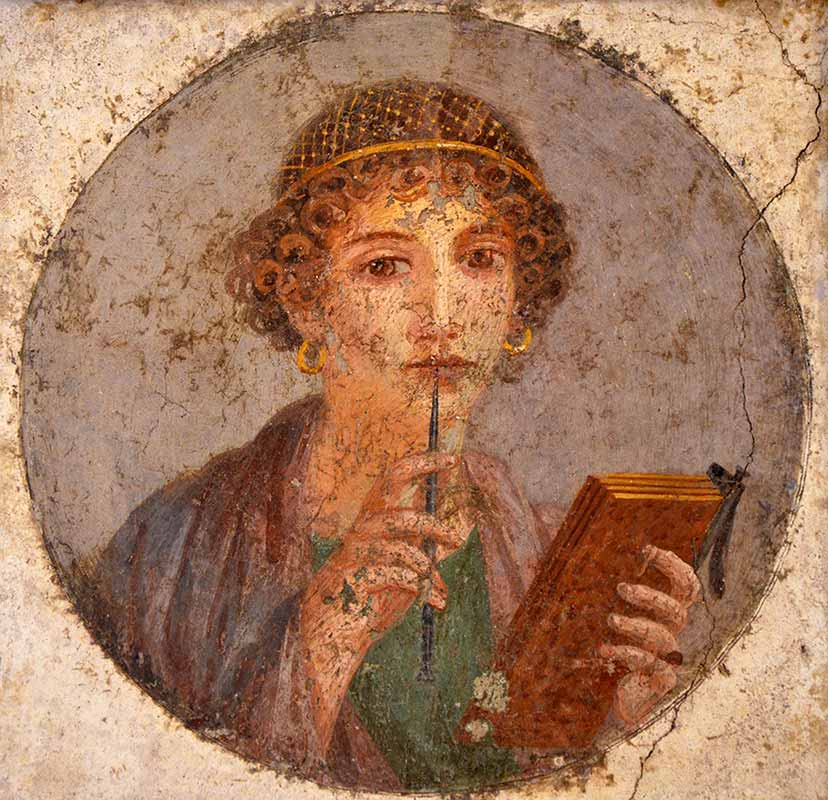Ancient Greece is a glass brimming with deep, dwelling, and interesting myths that explain the wonders of the world. Water spills over the edge of this glass with tales of great heroes, titans, gods and theorists. Men are depicted as the most powerful ones, but underneath lies the culture of ancient women charged with power and intelligence.
When someone says; Think of a Greek philosopher? A Greek god? What comes to your mind? Is it Daedalus, Socrates, Aristotle? Or maybe Zeus, all mighty king, Poseidon, Hercules, Perseus. “Mighty men and gods.” You do not think of their wives, their sisters or their daughters. The ones who were diminished, forgotten, and barely put on the records.
There were many influential women through time, but here are a few inspiring ancient Greek ones who turned the tables.
Aspacia: A Political Advisor and Intellectual
Aspacia (470-428 BC) was a famous Athenian politician and philosopher who shaped theories and the experiences behind famous scholars like Plato, Pericles and Socrates.
The city of Athens was known to give women very little freedoms and rights. Women were only there to represent respectable images in society and clean the houses. Aspacia made herself stand out in the crowd with her intelligence and intellectual being.
However Aspcacia was from Miletus, an ancient Greek city of Western Anatolia. She came to Athens as an educated woman and established an academic center for ideas which served as a school for women amongst the daily criticism and high patriarchal standards.
Aspacia’s knowledge of philosophy drew many noble citizens in Athens to listen to her. Though there are few resources stating her actions, she is credited with changing patriarchal standards in this ancient time and her defiance in pushing past societies limits. Aspacia was an early feminist who can be described as a “powerful controller over men” for her work in politics standards and theorists.
Sappho: Musician and Prominent Presence in Poetry.
Sappho was the first female poet in western literature. Born into a wealthy family on the island of Lesbos in 7th century BC, Sappho was educated and was likely a teacher of arts to young girls. Experiences of raw, pure emotion were the heart of Sappho’s poetry, belonging to the genre of lyric poetry.
Many scholars like Plato or Catullus were highly inspired by her rich, sensual work. They called Sappho “The Tenth Muse”, as she was so pure in art she was like a minor goddess.
Sappho’s poetry has survived in fragments after so many years. But they give a glimpse into her personal life and the lives of other Greek women during that time. She is best remembered for her love poetry that conveyed the aspects of passion, jealousy, affection and hatred. Sappho transformed literature and poetry for the future of her time, being one of the earliest writers to write in first person and convey such deep meaning.
Artemisia l: Warrior Goddess
Artemisia I of Caria was a daring queen who ruled over the Greek city-state of Halicarnassus. She played evident roles in the Greco-Persian Wars of the early 5th century BC, fighting along with the Persians.
During the battle of Salamis in 480 BC, Artemisia commanded a fleet of 5 Persian ships. This battle would determine the fate of Greece and the developing democracy of Athens.
She won respect from Athenians with her bravery and quick skilled mindset.
Artemisia was the face of challenges against traditional gender roles in ancient Greece. She held a position in the male-dominated prospect of war fare, and she was better than most men at her job.
These women’s stories offer a glimpse into the lives of ancient Greek women and the significant roles they played. How they laid the groundwork for future women operating in the male-dominant workforces. Even though there are few accounts recorded, the insight that is available shows us how they changed society in an ancient time when it was taught that only men were the best.


